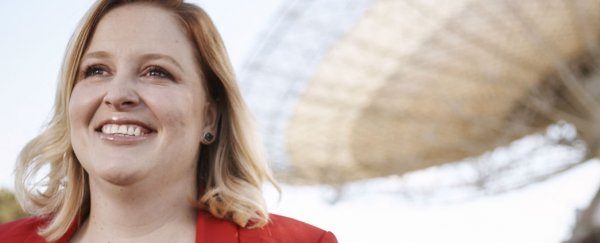Four of the most inspirational young female scientists in Australia and New Zealand have just received grants of $25,000 each to expand upon research that could have a significant impact on their respective fields.
Announced last night in Sydney, the 2015 L'Oréal-UNESCO For Women in Science Australia & New Zealand Fellows, Jodie Rummer, Muireann Irish, Shari Breen, and Christina Riesselman represent not only some of the most exciting research being conducted in areas ranging from neuroscience to astrophysics, they're also incredible role models for young women who want a career in science.
Jodie Rummer
A marine scientist at James Cook University and the ARC Centre of Excellence for Coral Reef Studies in Townsville, Jodie Rummer is figuring out what the future holds for sharks. Having been around since before trees were even a thing, sharks have evolved to be one of the world's most efficient hunters, and she's trying to work out if they'll be around in another 100,000 years.
Right now, Rummer is investigating the behaviour and ecology of salmon, mackerel, hagfish and several species of shark to figure out how they came to dominate their place in the world's oceans. She's also trying to work out how fish can deliver oxygen to their muscles 20 to 50 times more efficiently than we can. Having a better understanding of their evolutionary successes will help her to predict how sharks and other fish will cope with rapidly changing conditions in the oceans as the climate continues to heat up.
Muireann Irish
Cognitive neuroscientist Muireann Irish from Neuroscience Research Australia and the University of New South Wales in Sydney has pinpointed the regions in our brains that are essential to how we envision the future, ranging from simple concepts like "I must remember my keys and my wallet when I go out," to thinking about more complex things such as how our next holiday will pan out.
While that's fascinating enough on its own, Irish is now investigating how these regions work in relation to dementia, having shown through previous research that people with severe cognitive decline don't just lose the ability to remember the past, they also lose the ability to envisage the future. This can be devastating not just for the patients, but for their family members too, so Irish is looking into how these regions can be protected against the progressive damage dementia is now causing to 300,000 people around Australia.
Shari Breen
Congratulations - you and everyone around you is made of star stuff. From the nitrogen in our DNA and the calcium in our teeth to the iron in our blood - it all originated in high-mass stars that burnt intensely for just a moment before exploding and spreading out into the Universe. And Shari Breen, an astronomer with CSIRO in Sydney, is using the colossal 'Dish' out at Parkes and a network of international telescopes to figure out how these stars were born and then died.
Using masers, which are intense beams of radio waves that act just like laser light, Breen plans to trace the evolution of high-mass stars to put together a timeline for how the elements that eventually came to comprise us started out in the Universe.
Christina Riesselman
If you've got a geologist in your life, you've probably heard them say time and again that if you want to predict what's going to happen in the future, you're going to need a good understanding of the past, and that's what Christina Riesselman, a geologist at the University of Otago in Dunedin, New Zealand, is working on now.
By analysing sediment extracted from hundreds of metres under the sea floor on the Antarctic ice shelf, Riesselman can look back 3 million years into Earth's history. She's trying to understand what the effects of much higher temperatures and sea levels - they were about about 20 metres higher 3 million years ago than they are now - can tell us about where the planet is headed today. She's now focussing on what happened at the end of the last Ice Age around 10,000 years ago, and is interested in how that knowledge can inform us of the potential impact of our planet's rapidly changing climate.
